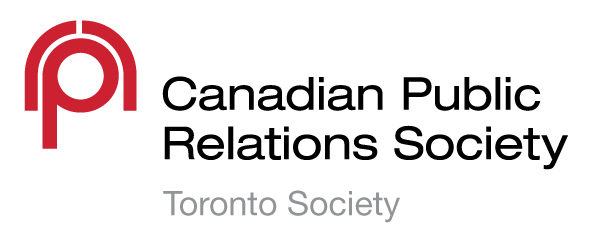For many people, a new year is the chance to polish up routines and kick bad habits. Typically, exercise regimes, healthy eating, and sleep patterns make up the bulk of focal points. In 2020, CPRS Toronto encourages professionals to work on their communication skills, too.
Whether you’re a student yearning to overcome any workplace wariness or a seasoned practitioner hoping to engage with anyone in the digital age, we’ve rounded up the best advice from across the industry.
Ready to become a strong communicator in 2020? Keep reading.
For students and young professionals
Have a strong sense of self-awareness
Before scrambling to assess whether your email etiquette or LinkedIn strategy is acceptable, it’s essential to look inward and consider self-awareness. If you have no idea what this even means, you have some work to do in the new year.
According to conflict resolution expert Aldo Civico, strong self-awareness has a direct correlation with effective communication. For communications students and young professionals, it’s critical to remember effective communication is, and always should be, two-way.
In 2020, young professionals can improve their communication skills by understanding their unique communication style. Several factors shape this, including beliefs, values, experiences, and preexisting biases. Being aware of these communication barriers is the first step to becoming a great listener. Once you have a grasp on yourself, you can begin transforming your relationships, and in turn, your communication ability. When in doubt, seek to understand, not just listen.
Rethink networking
Every young professional knows networking is vital to get ahead. Often times, the way people go about it feels unnatural and tough to sustain.
To discover job opportunities and make vital career connections, it’s important to network smart, not hard. According to Karen Wicke, author of Taking the Work Out of Networking: An Introvert’s Guide to Making Connections that Count, many students take the wrong approach when it comes to networking.
These days, there’s more job fluidity than ever. We just aren’t going to have the same professional networks our whole lives. In the book, Wicke refers to a quote from networking expert Ivan Misner. Misner argues, “Networking is less like hunting and more like farming.” For students, the idea that networking is transactional is flawed. Instead, young professionals looking to grow their network should see it as cyclical and ongoing, much like gardening or farming.
According to Wicke, the easiest way to rethink networking is to make it routine. “If you make a daily habit of being in touch with people, it’s not so scary when you need to do it,” she shared in an interview with Wharton University.
Chase what you’re interested in, not what’s popular
In a recent keynote by entrepreneurial mogul Gary Vee, he asserted, “Self-awareness and work ethic leads to happiness.” As a young PR student, I’ve fallen victim to following trends to keep up with everyone else, while keeping my interests on a far-away back burner.
You’ll never win playing a game that you don’t genuinely enjoy, and communications tactics are no different. For long term happiness in a dynamic playing field, don’t be afraid to forgo that high-paying position for something you know you’ll enjoy. Odds are, it’ll keep you playing longer.
For industry professionals
Choose the right channel, not just the ones you’re comfortable with
As a practitioner, it can be easy to stick with what communication channels feel comfortable over what’s up-and-coming, but this can be harmful. Today, the PR landscape looks vastly different than it did a few decades ago, and 2020 will be no different.
To be a stronger communicator in the new decade, professionals must understand what’s most effective for their professional and personal networks. In 2020, millennials (and increasingly more of Gen Z) will comprise roughly 50 per cent of the global workforce. By 2025, this is expected to rise to 75 per cent. For long-time practitioners, this is an open call to adopt channels that fit.
In the workplace, emphasizing mobile communication is more favourable for younger employees. Experts suggest the next decade will demand instant information, open transparency, and better approaches to collaboration. One of the best ways to tackle these is to adapt your communications strategy to make them work.
Take note of your non-verbal communication patterns
Experts agree that non-verbal communication is far more valuable than its verbal counterpart. Do you ever get the feeling someone is warm and inviting before they even speak? How about the opposite?
To avoid giving off the wrong message in 2020, take note of your posture, hand placement, smile, and eye contact. For example, good posture with a pleasant smile and uncrossed arms implies confidence. In contrast, poor posture and crossed arms suggests disengagement.
When working on non-verbal communication, a little improvement can go a long way!
Win at social media
If you’re stuck in a rut with your social media approach, don’t fret. The devices in our pockets are more powerful than ever.
In 2020, social media experts agree that consumption patterns will continue to change. The Facebook era is over. Instagram is commonplace. So, what’s next? Surprisingly, LinkedIn and TikTok are leading the game for organic reach.
For professionals wanting to get more reach and stand out, it’s time to give your social strategy a revamp. Content is king for a reason. Attracting eyes to your personal or professional platforms is difficult without a plan to get you there. For the new year, take time to assess your social media goals and work on developing a strategy that pushes content daily. For businesses in 2020, it will be challenging to reach new clients without it.
Written by: Alena Blanes, VP, Internal Affairs, CPRS Toronto Student Steering Committee

